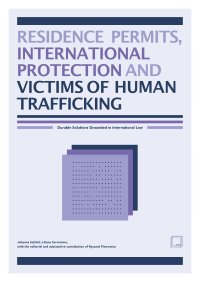By Jamal Barnes, Mostafa Mahmud Naser & Joshua Aston
It is widely recognised that migrants and irregular migrants are at risk of modern slavery and slavery-like practices worldwide. As migrants and irregular migrants make their way across state borders, or reach their destination countries, they have been victim to practices such as forced labour, exploitation, wage theft, torture and inhuman treatment and sexual servitude, among other practices. Australia is no exception, with just under 300 cases of modern slavery reported to the Australian Federal Police between 2021 and 2022. Although Australia has acted to stop slavery and slavery-like practices, it has focused on a law enforcement response, ignoring the role that laws and policies play in contributing to modern slavery in Australia. This article adopts a vulnerability approach to modern slavery, examining how legal, policy, institutional and structural factors within Australia contribute to exacerbating the vulnerability of migrants and irregular migrants to modern slavery and slavery-like practices. Utilising a vulnerability framework not only moves beyond the law enforcement approaches taken by the Australian government, but sheds important light on the need for policy, legal and institutional reform to effectively combat modern slavery in Australia and ensure there is redress and justice for its victims.
Australian Journal of Human Rights, Volume 29, 2023 - Issue 1






